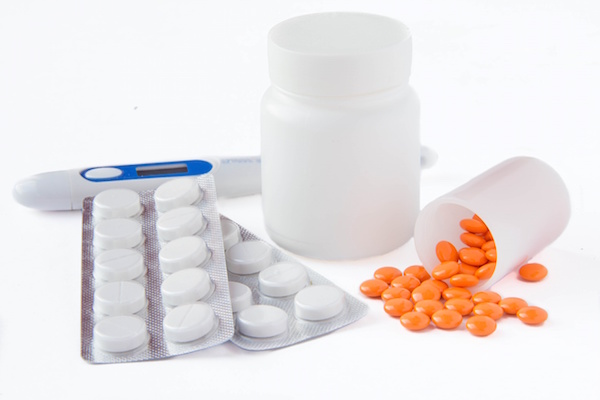
THURSDAY, March 17 (HealthDay News) — As people across the United States rush to buy potassium iodide pills to protect themselves against any possible radiation exposure from Japan’s nuclear plant crisis, experts stress there’s no need for the pills since there is little danger that Americans are at any risk.
“Don’t panic. This is close to an hysterical response,” said radiation expert Jacqueline Williams, program director for radiation medicine at the University of Rochester Medical Center’s Center for Biophysical Assessment and Risk Management Following Irradiation in New York.
Williams added there is no present danger or even a likelihood that radiation from the catastrophe in Japan — 5,000 miles from the U.S. west coast — will have any effect on people in the United States.
What’s more, iodide pills only protect from thyroid cancer — and the protection is limited.
“These pills only protect you against radioactive iodine, and we have seen only a little in the way of radioactive iodine being released [in Japan],” Williams said. “Given the fact that it has a very short half-life, it’s close to zero that any radioactive iodine of any quantity that would do any harm would end up on U.S. shores.”
A United Nations report suggests that the radioactive cloud that is drifting across the Pacific Ocean, and is expected to reach the shores of southern California late Friday, will be so diluted that it should only have the most minor of health consequences, The New York Times reported.
Another expert, Dr. William Inabnet, chief of endocrine surgery at Mount Sinai Medical Center in New York City, echoed that assessment.
“By the time radioactivity reaches the west coast of the United States, it will be so diluted that it won’t warrant taking iodine,” he said.
“In fact, iodine is recommended only for children and pregnant women, even in the setting of a nuclear disaster,” Inabnet explained. “Iodine is not recommended for people over the age of 40.”
Children, infants and fetuses need iodine to protect their active and developing thyroid gland from any genetic changes that could cause cancer later in life, he added. For adults, the effects, if any, from exposure to radioactive iodine would not be seen for years, he said.
Potassium iodide pills are generally safe, Inabnet noted. According to the U.S. Food and Drug Administration, side effects rarely occur. However, there are potential side effects for people who suffer from thyroid disease, such as Graves’ disease.
Iodine is essential for the thyroid gland — which regulates the body’s metabolism and calcium balance — to make its hormones. The gland cannot distinguish between iodine and radioactive iodine, so it will use either. The idea behind taking iodide pills is to saturate the thyroid with iodine so it won’t use any radioactive iodine, Inabnet explained.
Potassium iodide provides protection only for the thyroid from radioiodines, according to the FDA. “It has no impact on the uptake by the body of other radioactive materials and provides no protection against external irradiation of any kind,” the agency noted. Moreover, the effect from one dose lasts only a day.
The agency cautioned that potassium iodide should be an adjunct to “evacuation, sheltering and control of foodstuffs.”
The Japanese nuclear accident has opened a debate about whether the U.S. government should make potassium iodide more available to people who live near nuclear power plants, Bloomberg News reported.
Currently, potassium iodide pills are given to people who live within 10 miles of a nuclear power plant, Williams said.
In light of the radiation released from the Japanese power plant, U.S. Rep. Edward Markey (D-Mass.) has asked the White House to provide potassium iodide to people living within 20 miles of nuclear power plants, Bloomberg reported.
More information
For more on risks of nuclear radiation, visit the University of Pittsburgh.

